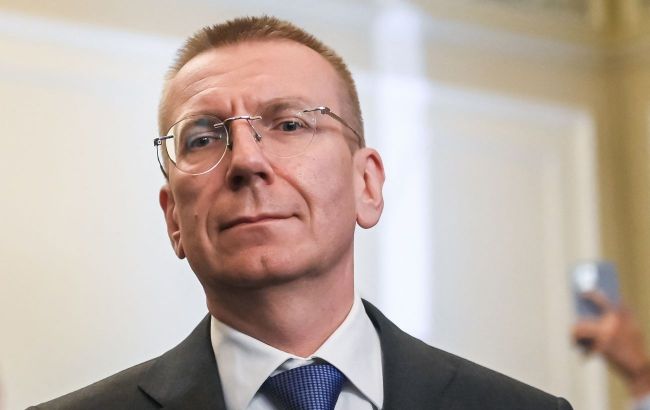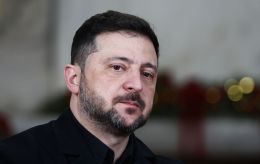Latvian President advocates unilateral ban on Russian grain import
 Photo: President of Latvia, Edgars Rinkēvičs (Getty Images)
Photo: President of Latvia, Edgars Rinkēvičs (Getty Images)
Latvia intends to unilaterally impose a ban on the import of Russian grain, citing political and economic reasons, says the President of Latvia, Edgars Rinkēvičs.
The President pointed out that a significant issue is the ability of third countries to enable Russia to circumvent sanctions. He believes that grain imports support the "Russian military machine" and adversely affect Latvia's agriculture.
According to Rinkēvičs, the so-called Russian grain may be stolen from the occupied Ukrainian territories. Additionally, grain is utilized as a weapon in hybrid warfare.
Decisions can be made at national level
The President mentioned ongoing discussions about how to restrict trade with Russia, including mineral fertilizers and various food products, including grain. So far, most EU countries have not made decisions on including these goods in sanction lists, making it challenging.
Decisions can be made at the national level. Rinkēvičs expressed support for actions taken by the government at both national and international levels to address this situation.
Earlier, Prime Minister Ēriks Šiliņš stated that it makes no sense for Latvia to unilaterally implement measures against the import of Russian grain, as restrictions adopted unilaterally would not achieve the intended goal.
According to the Prime Minister, a ban on the import of Russian grain imposed solely by Latvia would be "on paper" rather than in reality. Thus, it is crucial to convince other Baltic and EU countries of the necessity of taking measures.
The President emphasized that progress can be made through active efforts.
Restrictions regarding Belarus
"I am open to ideas that will finally reduce the dependence of any of our trade on Russia and Belarus," said the President.
Rinkēvičs noted his awareness of discussions in the Saeima (Latvian Parliament) regarding the imposition of additional duties on companies trading with Russia and Belarus. Responsible ministries are analyzing the situation.
13th sanctions package
The European Union has started discussing a new package of sanctions, which it intends to approve by February 24, 2024.
Possible sanctions were discussed on January 18 at a meeting of the bloc's ambassadors, where member states debated how best to support Kyiv in the long term. But reaching an agreement on the 13th package of sanctions by next month will not be easy, as the last one required weeks of negotiations, Bloomberg notes.
Politico wrote that Russian aluminum products are among the goods that may be embargoed as part of the 13th package of EU sanctions.

